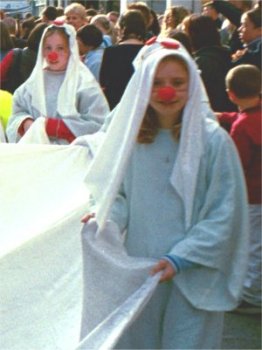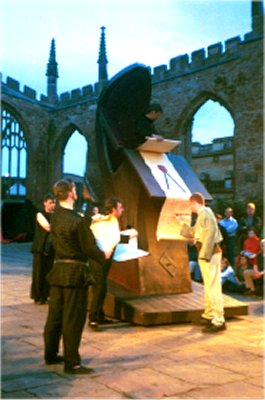Introduction
We have talked a long time about what art is and what it means in the community setting, but I am convinced the only way we will ever make meaningful progress in helping the world understand what we do is to put it into action.
What does this mean for those of us who work in rural and small communities?
This is an essential question because I am convinced that community arts development in rural and small communities is different and we have not always respected or understood these differences.
This presentation is about these differences. It is also about what I consider to be the most unique and important aspect of community arts development its role in nurturing the invisible culture of rural genius.
Let me begin by describing the situation with rural and small communities in the United States of America. I will then look at the Inscape of Rural and Small Communities, explore what I call the "values collision" threatening these communities; and finally, explore the role of community arts development in nurturing the invisible culture of rural genius.

County Galway Community Arts Network.
Life in Rural and Small Communities
Ever since rural and small communities in our nation came into existence, they have had a specific purpose. They dug the coal needed to create energy to electrify a nation; mined the minerals locked in rock and stone required to fuel a growing American industry; harvested the trees of the Shawnee Forest to provide lumber for houses and shelter for millions of families; and used the land to grow food for consumption to feed a hungry nation and world. They cleared the wilderness and pioneered a new nation into existence. From the beginning, they harvested their natural resources and sent them away to an ever growing concentration of people in crowded metropolitan locations.
This was how they made their living. They worked with their hands and fed a nation. It was a simple living consisting of hard, but meaningful work that returned to them a sense of pride and personal satisfaction. People in rural and small communities were connected to the land and understood they were in relationship with the earth. They knew they were serving as stewards of the land. And, they knew what the rest of us are just beginning to find out you can't "manage" rivers they will rise and wipe out all controls and restrictions imposed upon them; you can't mine resources without accepting the impact this has on the land and the lives of those who live on it, and you can't keep using the land without depleting its strength and reducing its yield. They knew this and they lived by these rules. The problem is, the world has changed and the rules have changed with it. No one knows how or when or even why but I don't know a person who disputes it. And no one has been affected by this change more than those who live in rural and small communities.
